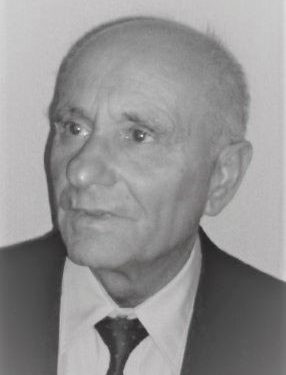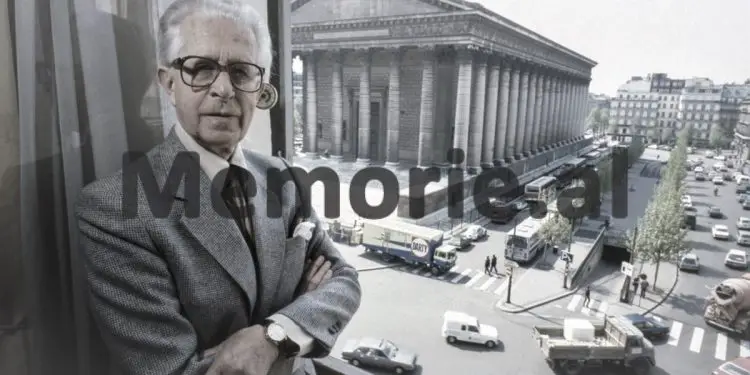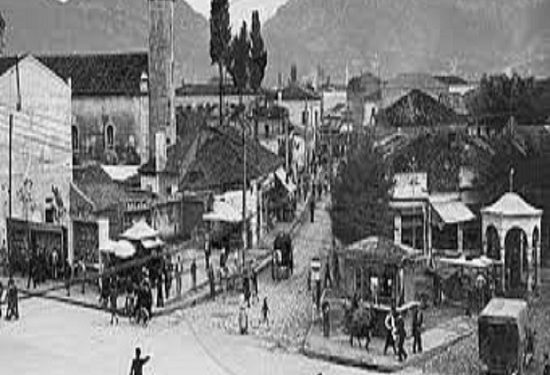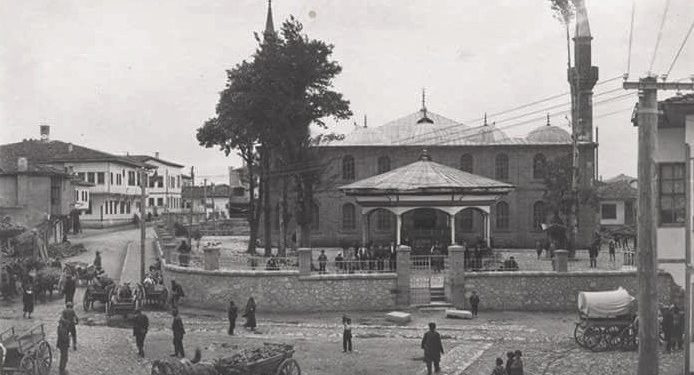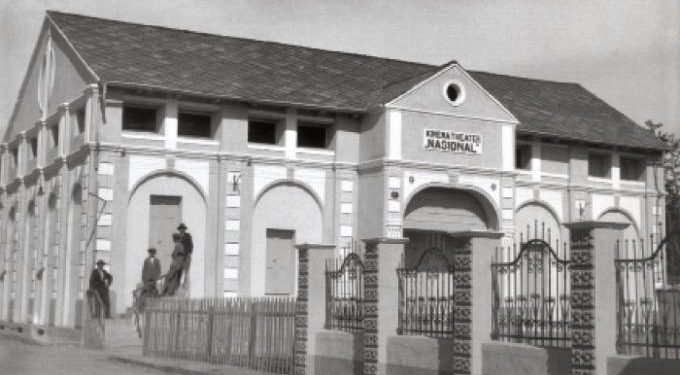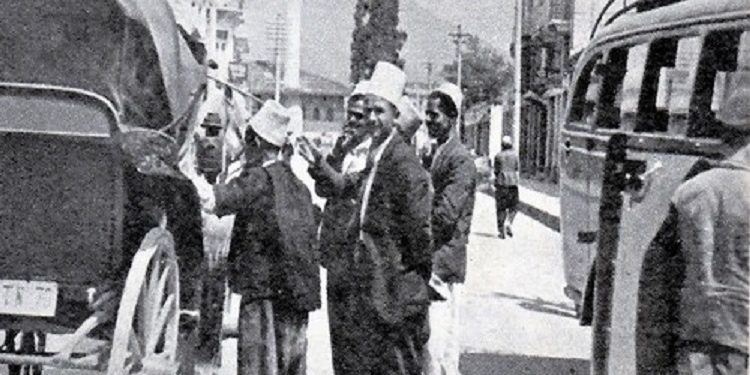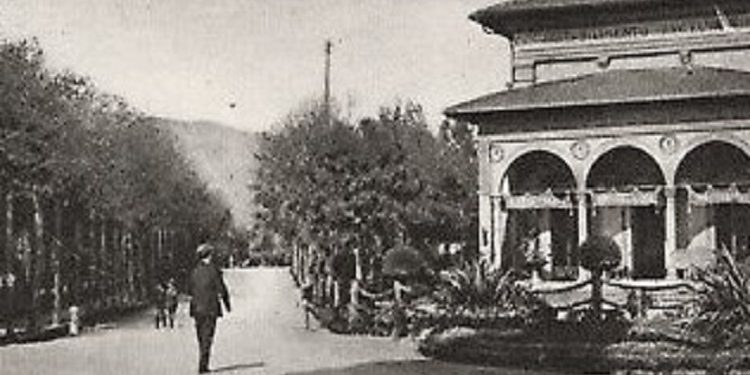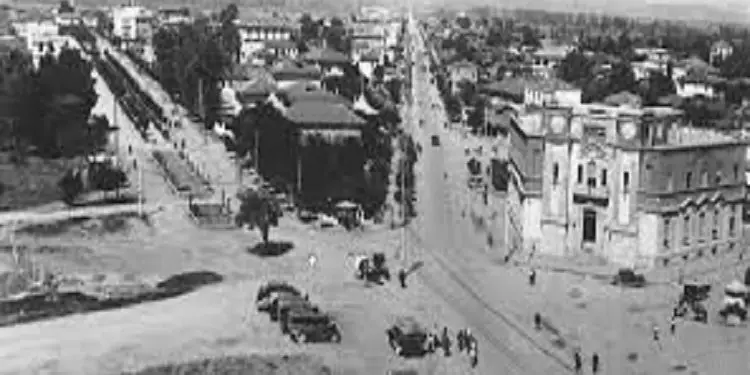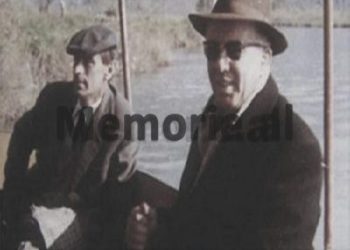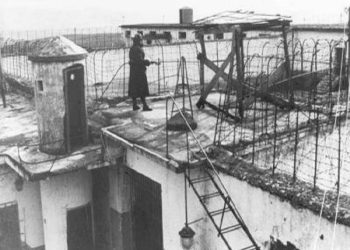By Sven Aurén
Translated by Adil N. Bicaku
Part eleven
ORIENTI EUROPE
Land of Albania! Let me bend my eyes
On thee, thou rugged nurse of savage men.
Lord Byron.
In the book “Orient of Europe”, the author of the work is the Swede Sven Aurén. They are impressions of traveling from Albania from the ‘30s. His direct experiences without any retouching.
In a word, the translation of the book will bring to the Albanian reader, the original value of knowing that story that we have not known and we continue to know it, and now distorted by the interests of the moment.
Now a little about what these lines address to you: My name is Adil Bicaku. I have worked and lived for over 50 years in Sweden, without detaching for a moment, the thought and feeling from our Albania.
I am now retired and living with my wife and children, here in Stockholm. Having been for a long time, from the evolution of the Albanian language, which naturally happened during these decades, I am aware of the difficulties, not small, that I will face, to give the Albanian reader, the experiences of the original.
Therefore, I would be very grateful if we could find a practical way of cooperation together, to translate this book with multifaceted values.
Morally, I would feel very relieved, paying off part of the debt that all of us Albanians owe to our Albania, especially in these times that continue to be so turbulent.
With much respect
Adil Biçaku
Continued from the previous issue
I do not see the program until the end but I leave the cinema and cross the dark path, where there is a small cafe. This coffee, in fact, is one of the modest efforts of Tirana for night life. Rare music penetrates outside, through the closed door and has attracted a crowd of listeners, who are sitting on the sidewalk. Inside, about twenty men sit and talk around the tables by the walls. In the middle is an open space and in a corner, a music show.
Apart from cinemas, cafes and Egyptian dance, Tirana has nothing to offer in terms of entertainment and its fine. The so-called continental amusements, which exist in the Balkan states, are of a destructive vulgar character. In this and many other sights, Tirana is the most brilliant capital of the Balkans. As long as it is, a rapid Europeanization usually, never brings only good with it.
When I say that Tirana has no other entertainment, than the ones I described, I want to make a very important reservation. Tirana has for the Albanian situation, an impressive garden coffee. It is located in the middle of the city and bears the inappropriate name “Kursalon”, doubly inappropriate, because it is associated with a quiet and peaceful restaurant, a sanatorium. The “Kursaloni” of Tirana is everything else, but not a place of tranquility. “Kursaloni” is the center of life of sparks and concerns of politics, a very important place, which I will come later in another context.
The citizen of Tirana is a regular citizen, who sleeps at night, smokes, drinks coffee and works during the day. Thus in the evening Tirana is a quiet city, the quietest city in Europe. As a small compliment of the deep silence, which for a nervous westerner, can often cause an irritating impression, this story continues. This is a beautiful story but certainly a lie. Mister Owen, the head of the ‘Standard Oil’ delegation in Albania, is its inventor.
The Standard Oil delegation consisted of five Americans, who set up their headquarters at the Continental Hotel to study the possibilities of the Albanian oil trade. It came in the afternoon and evening on the first day, and at dusk these five merchants would go out to have fun. They put on their tuxedos and put money in their pockets and went for a walk on the main boulevard to find a restaurant with a dance floor.
Mr. Owen, as I mentioned earlier was the head of the delegation, a policeman asked:
-Please can you recommend us some dance venues, please!
-There are no dance places in Tirana, the police respond.
-Some bars then?
-There are no bars in Tirana.
-Coffee with music?
-There is no coffee with music in Tirana.
-Man, so what is there?
-The only thing I can recommend to the gentlemen is to rent a nice hotel room and play a card game.
Worried, the five gentlemen returned to the hotel and sat down in one of their rooms, upstairs. They looked out the window and found that the city was completely black. The only light that could be seen was the two brightly lit windows in the Royal residence opposite. Realizing that the policeman was right, they pulled out the cards and started playing a poker game.
Ten minutes later the phone rang.
– Can anyone dare ask me what the gentlemen are playing? He wanted to know a special voice with good English.
-Poker, explained Mr. Owen.
-It’s King Bird, who speaks. Can I make a visit right away and attend a piece of time? I have a damn boredom.
THE LAW OF BLOOD AND THE DERVISHES OF ALLAH
It is our first day in Tirana. We stood to look in a corner of a bookstore and we are not the only ones watching. It’s a bunch of people, at that crossroads. Groups are gathered here and there, where it is discussed and gestured with great zeal. The shopkeeper himself, the former Minister of Education, Mit’hat Frashëri, now a book lover and trader with the literary nickname “Lumo Skendo”, stands very close to see the whole corner of the building. On one wall reads “Lumo Skendo” in large black letters, with a red bottom and a few words below what kind of shop it is, that the ad is aimed at. That old book lover looks quite enraged, when he puts on the glasses of the old model (pincenèn) to check the advertisement. There are not so many letters left in it. The wall is made of sieves with holes as much as fist, mortar and plaster are piled on the sidewalk. In some pieces of mortar, there is a large stain of clotted blood.
Here’s the explanation why all the people, seemed so distant this first morning. A few hours ago I made several visits to the ministries and was received in a very respectful way, but at the same time with certain shyness. A gentleman asked quite openly: Have you probably heard? I answer no, and he immediately switched to another topic of conversation, from there I had no chance to return to his strange question. But here in the library of “Lumo Skendos” it is not difficult to find out what happened. To the extent that language possibilities are sufficient, people are willing to serve with clarifications. There is no doubt about the kind of drama that took place on this street corner.
It is blood feud!
Two hours before our arrival in the capital, a highland leader comes for a walk on this road and stands for a moment, in the corner of “Lumo Skendos”. It is full of people outside. Donkey caravans pass one after another, and traders unscrew the window shutters and raise the curtains, to start a new day. Suddenly a rifle jumps and the bayraktar hears a bullet fall on the wall, near him. He tries to run back to get inside the store, where Lumo Skendo quietly flips through a French novel, but from this side, come a man with a raised pistol. He turns around and sees himself surrounded, in half circle by five men. The situation is hopeless. All I have to do is surrender my soul into the hands of Allah and wait for death as a man. The bullets cracked at a distance of five meters, the plaster of the wall turned to white mist. Passers-by stand instantly, out of breath.
Thus they defeated the aggressor and then come the tragic-comic solution of the drama: the bayraktar is not hurt. He stood there, helpless in the midst of the barrage of bullets, and yet, did not receive a single scratch. But in the rubbish of the road, there are two bodies, representing the tragedy of this event, two bloody and dead figures, a woman and a child. They had nothing to do with the event at all, but had the misfortune to cross at the crossroads, at the fatal moment. Both victims are removed from there.
Now we stand here and look even better at the marks of the cracks in the wall, behind this bloody story, the piles of wall plaster, the great mark of blood, right next to the door. It is very important to demonstrate how this whole event went. Here stood this and here this, there shot this bullet there the other. But Lumo Skendo does not speak at all. He checks the extent of the damage caused and when I ask him for some information, he responds:
-Cursed hooves! They have broken down my wall!
Of course all this, made a bad impression on us. Our first Albanian day, gave in this way a very combative and disturbing aspect, I thought to myself, that the Italian journalist, who on the steamer, from Bari warned me about the state of King Zog, now as it happened maybe he had to right, in his pessimistic expressions. The explanation given by some of the government officials, that it was an attack of a kind, like in Chicago that is a daily occurrence, hardly seems convincing. Because of a misused patriotism, these gentlemen tried to keep the motive of blood feud behind the scenes. It seems to me that this very motive spoke about the advantage of Albania. But I have to make some distinctions between resolving honor issues and gangster attacks.
It was the secretary of the Ministry of Foreign Affairs, Monsignor Vlora, a wise man, who saw it unreasonable and naive to embellish things, who gave me a correct description of the cause of history. There are quite a few people in Tirana, who have anti-Royal attitudes, who prefer to present Albania and the Albanian situation, in the lightest possible light, so that they can and at the same time, blame the government for the situation. Comparing the presentation of information, made by Vlora with that of the political appearance, diametrically opposite, managed to create a, I believe, a very credible reality panorama of this strange institution of justice, which constitutes the Albanian blood feud.
Regarding the assassination outside the library of “Lumo Skendo”, Vlora said:
-The man, who was threatened in that attack and completely escaped without any grave – could not walk without a revolver – is a bayraktar of a smaller tribe, in the northern part of the country and an army major in reserve. He and his family are in blood, for a long time with another Bajraktari family, not far from his area. Those five men, who attacked him, were members of the opposing family. When they found out that the mayor had gone out for a walk alone, without any guards to protect him, they thought the case had come. The sad result was the death of two innocent people. It would be easy to have more.
-What does the government do to limit this barbaric tradition?
-The government does everything it can. The assassins have been caught and will pay with death, the violation of the law in force. The modern Albanian criminal code, in fact, provides for the death penalty for attempted blood feud.
-But still, the blood feud is still alive?
Monsignor Vlora, smiles:
-I will be completely honest with you. It always exists. But to understand this phenomenon, you must have a clear history of Albania. You must remember the forced isolation, from which, our people, have been forced to experience, for several hundred years and do not forget that the Albanian state has only a few years on its neck. Blood feud is an ancient tradition, born and conditioned, by an extremely finely formulated code of honor. An honest man does not allow a murdered family member not to take revenge. Previously he was personally obliged to take revenge because there was no judicial body, or even if there was, he did not have the proper authority.
Now he neither needs nor is allowed to do this anymore. It is not easy to eradicate a millennial tradition, as without evil. It so happened that the tribes exterminated each other and not many years ago, there were about 300 cases of blood feuds per year. Now we have no more than 10 or 12 such stories every year. This is if it takes into account all the circumstances, a beautiful sign, for a rapid cultural rise. Because even today, the code of honor, puts extraordinary demands, for what “is in the blood”. Suppose you killed my brother and I, from this, have remained the head of the family. It may happen that when I visit one of the tribes, I get offended in a very sensitive way.
When we are sitting together and the coffee comes, the housewife puts her left hand on the right, when she extends my cup. This is a clear sign that I am not a man of dignity. If he is the master of the house, serving, then he extends my cup below my left knee. Do the homework! “Revenge brother”, that means. You understand what tension such insults cause, what sense of social responsibility that is required of a man who is stigmatized in this way. The right to punish the continuation of the life of the unwritten code of honor should be reserved only to the state.
It seems to me that it is great that we have succeeded in eradicating the blood feud, as it has already achieved. In this regard, I want to say one more thing: do not forget that those twelve cases, which I mentioned, occur on the streets of Tirana. As far as I know this is the first time, that we have had a history of blood feuds, within the city limits. You go safer on the streets of Tirana than in the big cities of the world. You can let your lady take a walk at night, alone, anywhere in the city. I give you the word of honor that no one will tease him, not even with a word.
-So, the instigator of the assassination outside the bookstore, the family of the bayraktar up there in the mountains, will he also be punished?
-Naturally.
With an important exception, my interlocutors write against the government, under the words of Vlora: it is not believed that there is any punishment for the instigators. King Zog would not dare to clash, so much with that chief of the strong tribe, up there in the north. But those assassins, paid for of course, would hang. Memorie.al
The next issue follows




